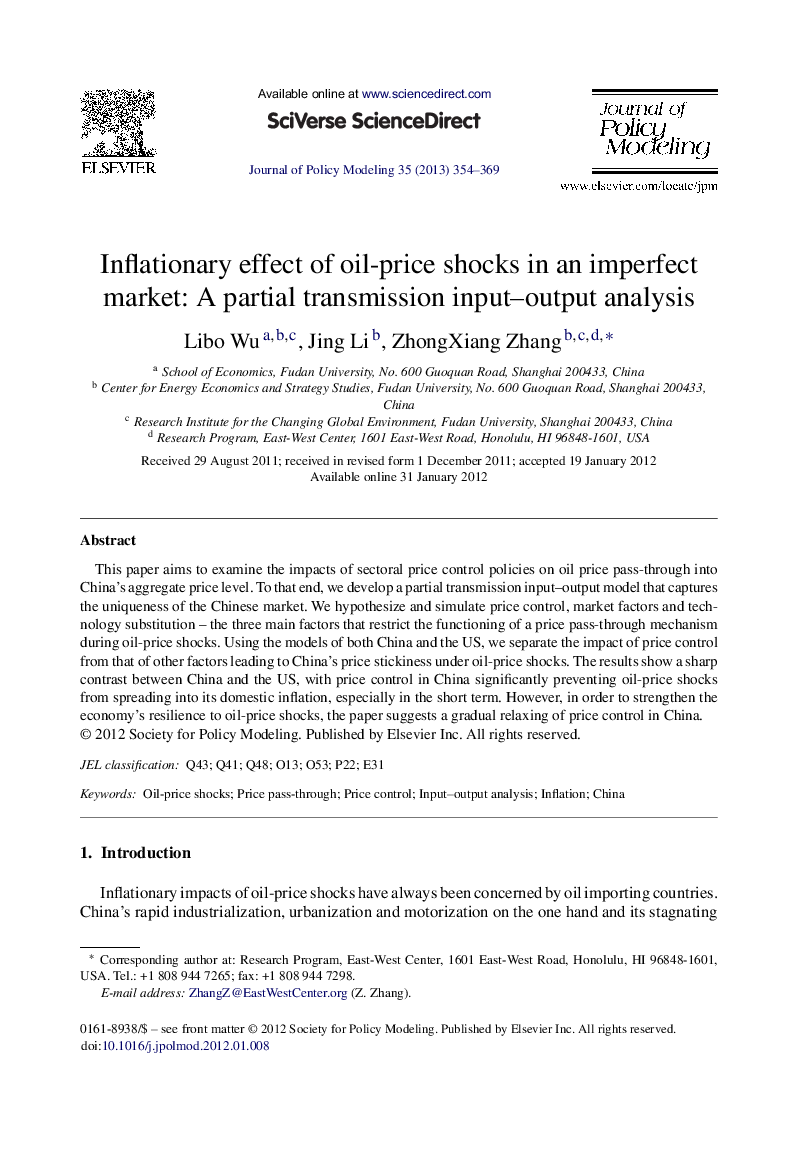| Article ID | Journal | Published Year | Pages | File Type |
|---|---|---|---|---|
| 968575 | Journal of Policy Modeling | 2013 | 16 Pages |
This paper aims to examine the impacts of sectoral price control policies on oil price pass-through into China's aggregate price level. To that end, we develop a partial transmission input–output model that captures the uniqueness of the Chinese market. We hypothesize and simulate price control, market factors and technology substitution – the three main factors that restrict the functioning of a price pass-through mechanism during oil-price shocks. Using the models of both China and the US, we separate the impact of price control from that of other factors leading to China's price stickiness under oil-price shocks. The results show a sharp contrast between China and the US, with price control in China significantly preventing oil-price shocks from spreading into its domestic inflation, especially in the short term. However, in order to strengthen the economy's resilience to oil-price shocks, the paper suggests a gradual relaxing of price control in China.
